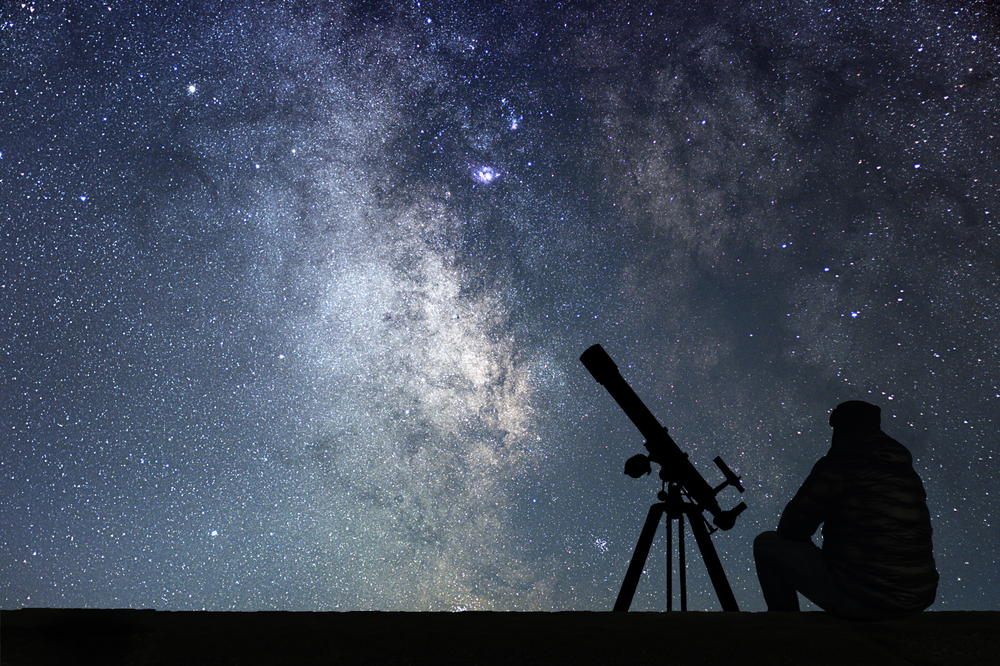
Astrology’s popularity among adults under 40 has grown dramatically over the last several years, and it shows no signs of stopping. Los Angeles Times editor Jessica Roy called this growth a spiritual shift motivated by a need for purpose and alienation from mainstream religion. Yet even as some people shake their heads at this trend, there’s no denying the history astrology shares with astronomy. From the ancient Middle East to the Enlightenment period, astrology and astronomy have depended on each other to survive.
Star-Watching in Prehistoric Times
Ancient societies from Asia to the Americas strove to divine the meaning and movements of celestial objects. Star-watching may have begun to simply mark the seasons and aid in travel. According to the Human Origin Project, the earliest evidence of astronomy exists in Egypt’s Nabta Playa. Archaeologists discovered a stone circle that’s at least 7,000 years old, and its construction points to its possible use as an observatory.
Later examples include the Nebra sky disk, discovered in 1999 near the Unstrut River in northeastern Germany. The Ancient History Encyclopedia mentions that the disk has been dated to 1600 BC and was crafted by the Bronze Age civilization in the region. Just fifteen miles away from the disk’s original site sits the Goseck circle, an observatory built around 4900 BC. That’s close to the same time that the Nabta Playa stone circle would have been built.
Astronomy and Astrology in Antiquity
Western astrology has its roots in ancient Middle Eastern cultures. Advanced civilizations in antiquity continued to map the stars, seeing them as reflections of their gods’ actions and intentions. To achieve the most precise analyses possible, early scholars needed a sophisticated understanding of how celestial objects moved. For individuals serving governments or monarchies, their reputations and lives literally depended on accurate tracking and forecasting.
Some of the earliest and most sophisticated evidence of the link between astronomy and astrology comes from ancient Babylon. The Encyclopedia Britannica mentions the kingdom’s astrological civil service, which typically included priests serving as temple scribes. These individuals watched the night skies and kept records of their observations on clay tablets. From this data, Babylonian astronomers discerned repeating patterns and developed predictive models.
Ancient Greek astronomers continued these practices, applying mathematical disciplines like geometry to understand, describe, and predict celestial motion. Ptolemy is the most famous of these astronomers. His works include the astronomical treatise Almagest and the astrology text Tetrabiblos, both written in the second century CE.
Astrology and Predictive Analysis
Astrology and astronomy continued to coexist through the Middle Ages and Renaissance. Space.com contributor Nola Taylor names several influential astronomers, such as Abd al-Rahman al-Sufi, who first identified the Andromeda Galaxy. Among these luminaries were Nicolaus Copernicus, Tycho Brahe, and Johannes Kepler. The Guardian’s Philip Ball mentions how several of these astronomers also practiced astrology. Part of Johannes Kepler’s job was drawing up horoscopes for Holy Roman Emperor Rudolf II. Kepler used Tycho Brahe’s extensive astronomical data collection for creating the emperor’s horoscopes. Data scientist Alexander Boxer discusses astrology’s role in astronomy and predictive analysis, tracing it back to ancient times in his 2020 book A Scheme of Heaven: Astrology and the Birth of Science. Just as astronomers developed algorithms in ancient times, modern institutions use algorithms to predict variables like consumer behavior.
Depending on who you ask, astrology is either a useful divination method, an unreliable pseudoscience, or a fascinating look into the human psyche. No matter what your views are, it’s hard to deny the role astrology has played in politics and science throughout human history. If nothing else, it reflects a human desire to understand our surroundings and predict trends with reasonable accuracy. Both in ancient and modern times, humans need to find certainty in a seemingly uncertain world.

